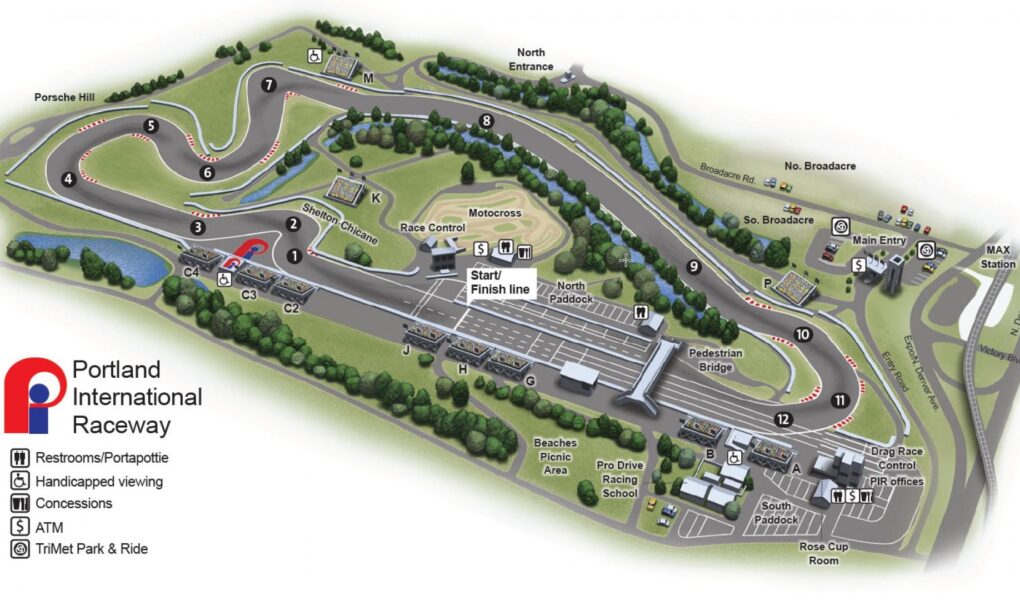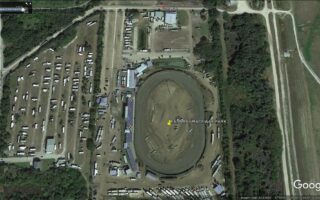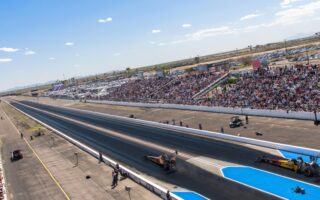Driving the World: An Exploration of International Raceways
In a world where speed, precision, and passion converge, international raceways stand as thrilling arenas where dreams take flight and boundaries are pushed to their limits. These vast tracks, lined with a tapestry of flags and history, offer a spectacular stage for motorsport enthusiasts and casual spectators alike. From the roar of the engines to the adrenaline of the crowd, raceways are more than just asphalt and tires—they are cultural crossroads, echoing the diverse spirit of competition that transcends borders. In this article, we delve into the fascinating realm of international raceways, examining their significance in the landscape of global motorsport, their architectural marvels, and the compelling stories they harbor within their curves and straightaways. Join us as we navigate the intricate world of racing, where every lap tells a story and every race is a testament to human ingenuity and determination.
Table of Contents
- Exploring the Dynamics of International Raceway Culture
- Navigating Safety Protocols: Best Practices for Race Participants
- The Economic Impact of International Raceways on Local Communities
- Fueling the Future: Sustainability Initiatives in Global Motorsport Events
- Q&A
- Key Takeaways
Exploring the Dynamics of International Raceway Culture
The allure of racetracks transcends mere motorsport; it encapsulates a multifaceted culture that thrives on speed, community, and innovation. Attending an international raceway event offers a window into a world where enthusiasm and rivalry coexist in exhilarating harmony. Spectators gather not only to witness the fierce competitions but also to immerse themselves in the vibrant atmosphere filled with the roar of engines, the smell of burning rubber, and the eclectic energy of fans from all corners of the globe. Traditional boundaries fade as diverse cultures meet, united by the universal language of racing. From grand prix in Monaco to the iconic Le Mans, each venue embodies a unique spirit shaped by local customs and international influences.
- Community Engagement: Local vendors and organizations play a crucial role, enhancing the raceway experience with culinary offerings and merchandizing opportunities.
- Innovative Technology: Spectacular advancements in automotive design and engineering often debut on these tracks, showcasing the latest in performance and efficiency.
- Fan Interaction: Social media engagement and interactive experiences, such as fan zones and car displays, create a dynamic relationship between teams and their supporters.
| Raceway | Location | Signature Event |
|---|---|---|
| Monaco Grand Prix | Monaco | Formula 1 |
| Daytona International Speedway | Florida, USA | NASCAR |
| Le Mans Circuit | Le Mans, France | 24 Hours of Le Mans |
Navigating Safety Protocols: Best Practices for Race Participants
Participating in a race at an international raceway demands not just enthusiasm and skill, but also a strong commitment to safety. Adhering to safety protocols can make the difference between a memorable day and a disaster. Remember to wear appropriate gear, including a certified helmet, fire-resistant suit, gloves, and shoes. Ensuring that your equipment meets the latest safety standards is crucial, not only for your well-being but for the well-being of your fellow participants. Familiarize yourself with the layout of the track, including entry and exit points, emergency exits, and evacuation procedures, to navigate the course effectively.
It’s also essential to understand the inherent risks associated with racing. Be aware of your surroundings; monitor fellow participants and communicate any hazards immediately. Participate in any pre-race briefings, as they provide valuable information on specific protocols unique to the venue. In addition, keep an eye on weather conditions, as they can change rapidly and affect track safety. To assist in organizing your race day, consider the following table summarizing key safety practices:
| Safety Practice | Description |
|---|---|
| Wear Protective Gear | Ensure all gear is race-approved and fits properly. |
| Communication | Stay in touch with race officials to report issues. |
| Track Familiarization | Study the layout and emergency protocols in advance. |
| Weather Awareness | Check forecasts and be prepared for weather changes. |
The Economic Impact of International Raceways on Local Communities
The presence of international raceways serves as a significant economic driver for local communities. These venues attract a diverse range of visitors, including racing enthusiasts, sponsors, and media, creating a positive ripple effect throughout the region. Local businesses, such as hotels, restaurants, and retail shops, often see spikes in revenue during major racing events. The raceway acts as a hub of activity, leading to increased demand for services and products within the community. Furthermore, employment opportunities arise from both the event itself and its associated support services, such as logistics, catering, and maintenance.
In addition to short-term economic boosts, international raceways can foster long-term investments in infrastructure and community development. Municipalities often undertake improvements to roads and public transportation to accommodate increased traffic, resulting in better connectivity for residents. The revenue generated from racing events can also lead to funding for local projects, including parks, schools, and recreational facilities. The economic contributions of a raceway can be summarized as follows:
| Economic Contribution | Description |
|---|---|
| Tourism Increase | Boost in visitors leading to revenue for local businesses. |
| Job Creation | New employment opportunities across various sectors. |
| Infrastructure Development | Improvements in local infrastructure benefiting residents. |
| Community Programs | Funding for local projects through raceway-generated revenue. |
Fueling the Future: Sustainability Initiatives in Global Motorsport Events
Motorsport events are embracing sustainability like never before, positioning themselves as leaders in the movement toward environmentally friendly practices. Prominent racing series around the world are introducing initiatives aimed at minimizing their carbon footprint. These efforts are not only a response to growing environmental concerns but also serve to engage fans and stakeholders in a more responsible approach to racing. Some of the key strategies include:
- Use of Sustainable Fuels: Many racing teams are now utilizing biofuels and synthetic alternatives that significantly reduce greenhouse gas emissions.
- Electric and Hybrid Vehicles: The rise of electric racing series showcases a commitment to innovation while promoting cleaner technology.
- Zero Waste Policies: Event organizers are implementing comprehensive waste management plans that focus on recycling and composting to minimize landfill contributions.
Moreover, venues hosting these events are beginning to incorporate sustainable practices into their infrastructure. This includes the installation of solar panels, rainwater harvesting systems, and the use of green materials in track construction and maintenance. As part of these efforts, many raceways have set ambitious goals to achieve carbon neutrality within the next decade. Below is a snapshot of some notable achievements and commitments in this arena:
| Event | Sustainability Goal | Year of Commitment |
|---|---|---|
| Formula E | Carbon Neutrality | 2020 |
| 24 Hours of Le Mans | 100% Sustainable Fuels | 2024 |
| F1 | Net Zero by 2030 | 2020 |
Q&A
Q&A about International Raceway
Q1: What is an international raceway?
A: An international raceway is a complex designed for various types of motorsport events that adhere to international standards set by governing bodies like the FIA (Fédération Internationale de l’Automobile) or FIM (Fédération Internationale de Motocyclisme). These facilities often host competitions ranging from Formula 1 races to motorcycle championships, offering a layout that includes both road courses and drag strips.
Q2: Where are some notable international raceways located?
A: International raceways can be found around the globe, each with its own distinctive features. Some notable examples include the Circuit de Monaco in Monte Carlo, known for its challenging street layout; the Nürburgring in Germany, famous for its long and treacherous track; and the Suzuka International Racing Course in Japan, renowned for its figure-eight design.
Q3: What types of events typically take place at an international raceway?
A: International raceways host a plethora of events including Formula 1 Grand Prix, endurance races like the 24 Hours of Le Mans, MotoGP events, and even regional kart racing competitions. Beyond motorsport, many raceways also facilitate driving experiences, corporate events, and track day outings for enthusiasts looking to get behind the wheel.
Q4: How does an international raceway contribute to local economies?
A: International raceways act as significant economic engines for their regions. They draw in thousands of visitors for races, which boosts hospitality, tourism, and retail sectors. The influx of spectators, teams, and media creates jobs, stimulates local businesses, and can lead to infrastructure improvements.
Q5: What safety measures are implemented at international raceways?
A: Safety at international raceways is paramount and encompasses various protocols. Facilities are equipped with advanced barriers, runoff areas, and safety vehicles. Additionally, drivers and teams adhere to strict safety regulations, including comprehensive training, the use of personal protective equipment (PPE), and continuous monitoring of vehicles’ performance to prevent accidents on the track.
Q6: How do international raceways maintain sustainability in motorsport?
A: Many international raceways are prioritizing sustainability through various initiatives. This includes utilizing renewable energy sources, implementing waste reduction programs, and promoting eco-friendly racing technologies. Some venues have even started paving their tracks with recycled materials and implementing water conservation measures to contribute positively to their environments.
Q7: What impact has technology had on the racing experience at international raceways?
A: Technology has revolutionized the racing experience at international raceways. From advanced telemetry that allows real-time data analysis for teams to automated timing systems for record precision, technology enhances both competition and fan engagement. Spectators can now enjoy live streaming, VR experiences, and interactive applications that deepen their connection to the events and drivers.
Q8: Can amateurs participate in events at an international raceway?
A: Yes, many international raceways offer opportunities for amateur drivers to participate in track days or racing schools. These programs provide budding racers with the chance to hone their skills and experience the thrill of driving on a professional track, often under the guidance of experienced instructors.
Q9: What should spectators expect when attending an event at an international raceway?
A: Spectators can look forward to a thrilling atmosphere packed with adrenaline! From the roar of engines to the colorful spectacle of cars speeding by, an event at an international raceway is an immersive experience. Participants can also enjoy food vendors, merchandise stalls, entertainment zones, and opportunities to meet drivers and teams, ensuring a memorable day for motorsport fans.
Q10: How does one get involved in the motorsport community centered around international raceways?
A: Getting involved in the motorsport community can be as simple as attending events at a local international raceway or joining a motorsport club. Enthusiasts can volunteer at events, participate in driving experiences, or explore potential career paths in the industry. Social media and racing forums also serve as platforms for connecting with fellow fans and professionals in the field.
—
This Q&A aims to provide insightful information while sparking curiosity about the dynamic world of international raceways.
Key Takeaways
In the grand tapestry of automotive culture, the international raceway stands as a vibrant thread, weaving together stories of speed, competition, and passion. From the roaring engines that echo through the stands to the fervent crowds who share in the thrill of the chase, these tracks are more than mere strips of asphalt; they are arenas where dreams take flight and champions are born. As we step away from the finish line of our exploration, it’s clear that international raceways are not just locales for contests; they are cherished spaces that celebrate the spirit of racing across borders and cultures. Whether you are a seasoned enthusiast or a curious newcomer, the allure of the raceway invites us all to embrace the journey, where every lap tells a story and every moment is a chance to experience the exhilarating pulse of motorsport like never before. As the engines fade into the distance, may the memories linger, reminding us that the world of racing is an ever-evolving adventure waiting for the next thrilling chapter.



